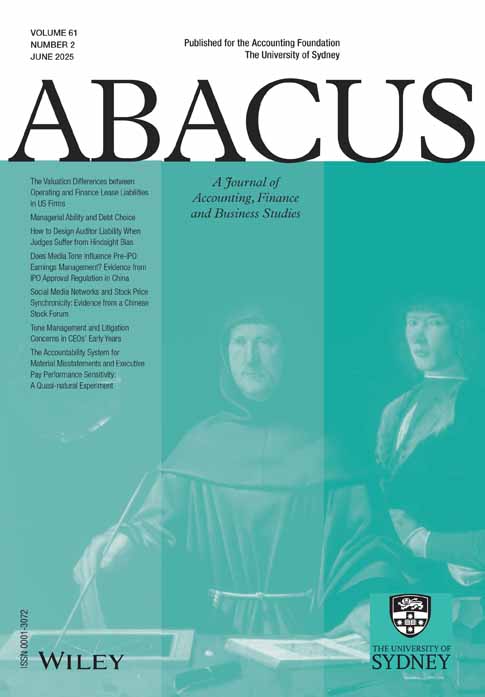Culture, Corporate Governance and Disclosure in Malaysian Corporations
Abstract
Evidence from research conducted on corporate accounting indicates that the interaction of environmental factors in fluences disclosure practices. The purpose of this study is to examine the importance of various corporate governance and cultural (race and education) characteristics, in addition to firm–specific factors, as possible determinants of voluntary (non–mandatory accounting and non–accounting information) disclosures in the annual reports of Malaysian listed corporations. The results of the regression analysis indicate significant associations (at the 5 per cent level) between two corporate governance variables (viz. chair who is a non–executive director and domination of family members on boards) and the extent of voluntary disclosure. This finding has implications for corporate governance policy formulation by the Malaysian Institute of Corporate Governance (MISG). One cultural factor (proportion of Malay directors on the board) is significantly associated (at the 5 per cent level) with the extent of voluntary disclosure suggesting that governmental focus on culture may solicit a response to secrecy from those who feel threatened.




